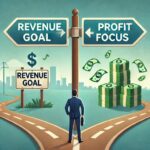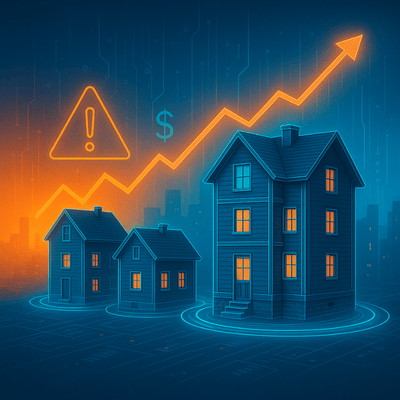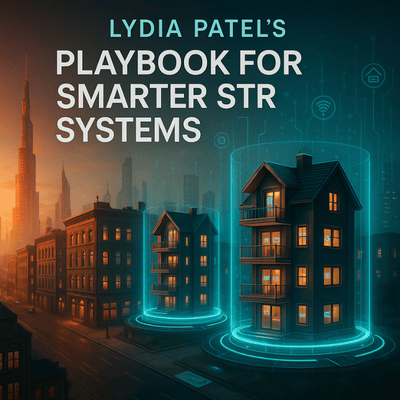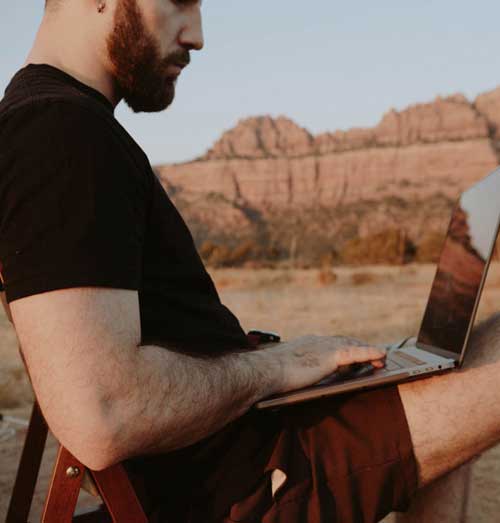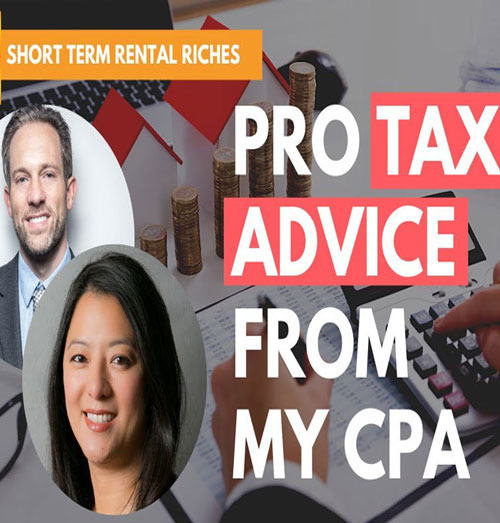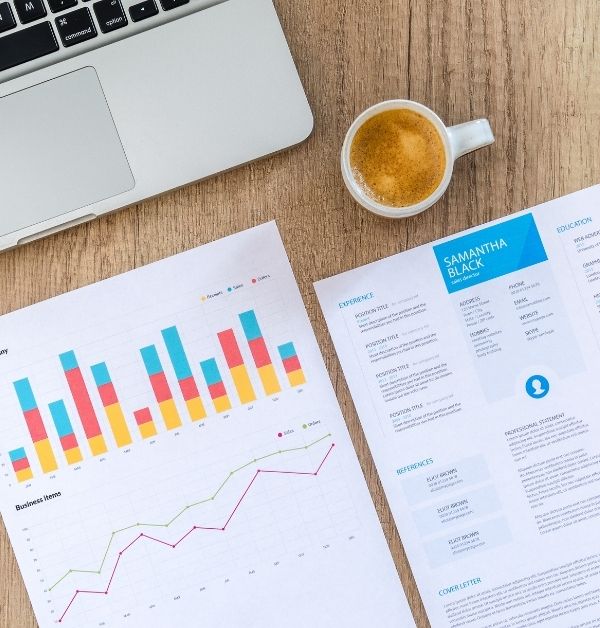How could rising tariffs at the Canadian and Mexican borders possibly affect your Airbnb? Turns out, quite a lot. In this episode, we break down how new 25% tariffs could increase your renovation and furnishing costs—and what you can do to prepare for a tighter margin environment.
• Discover how new tariffs can increase your construction and renovation costs by 10% or more.
• Learn why your furniture and appliance budget needs to grow—and how to plan for it.
• Understand how these price hikes impact international travel, guest spending, and your occupancy.
• Get actionable tips on using dynamic pricing tools like PriceLabs and AirDNA to stay competitive.
• Find out how to prep for longer lead times, inventory issues, and future-proof your STR investments.
Tariffs may sound like far-off policy shifts, but they’re already working their way into your operating budget. Stay informed, adjust your strategies, and protect your margins by staying ahead of these shifts. Don’t forget to subscribe, share the episode, and tap into the resources below.
Resource Links:
Check out our videos on YouTube: https://www.youtube.com/@ShortTermRentalRiches
Grab your free management eBook: https://strriches.com/#tools-resources
Looking to earn more with your property (without the headaches)? Chat with our expert management team: https://strriches.com/management-services/
what do rising tariffs on the Canadian and Mexican borders have to do with your Airbnb?
More than you think, actually. And so in this episode, we’re gonna break down how a 25% tariff could raise your operating costs, raise construction prices, and shrink your profit margins if you’re not prepared.
So why do tariffs actually matter for those of us investing in short-term rentals or operating them or wanting to invest in short-term rentals? Well, it’s essentially a tax. So if we imagine a 25% tariff, that is a tax that ultimately gets passed down to us on imported goods, and now we purchase a lot of imported goods when it comes to our short-term rentals.
But these tariffs aren’t just affecting importing goods. They’re also affecting new construction, which also includes big renovations. We get a lot of our lumber from Canada and in the us. Construction costs are estimated to go up by at least 10% , or more. And now that might not seem like a big deal, but that has a really big, big impact, especially on a space construction that’s already in a bad spot.
They have really high interest rates and construction just takes a long time. We have to go through all this permitting process, so that has a big effect on the overall supply of housing.
So in short, these tariffs basically mean higher prices for a lot of the goods that we’re purchasing in the US
the cost of our furnishings and renovations are going up. That means if you have a big renovation planned, well, you’ll just want to double check. The longer your renovation is, the more likely that these tariffs are going to increase those construction costs for you.
If you were planning on adding an A DU to your backyard, or you had some spare space and a lot, well those costs are very likely going to go up.
And then of course, all of the costs that go into furnishing a rental are affected as well. So if we think of things like furniture, appliances, these things are very often imported, which means. They’re going to have a higher price tag. I remember back during the Covid days, I purchased a commercial building to put a laundromat in there.
I’ve talked about it on this channel before. If you’re new here, you can find all of our past episodes, attr riches.com. But anyways, long story short, I demoed the inside of the 6,400 square foot building. Everything was ready to go.
I had plans in place to put in the machinery, and then because of supply issues, those machines were not available for like six or nine months. And then, yes, the construction costs. Went way, way up for the actual build out and the installation.
So unfortunately I didn’t go through with that project, but I still use the building today and my team helps us do all of our laundry in one of the cities where I have a lot of short-term rentals.
So these have real world impacts, right? Covid was a really abrupt change in our supply, whereas these tariffs are gonna be a little bit more gradual, but they are going to have massive, massive impacts. Apple, for example, has already invested. billions of dollars for a new manufacturing plant in the US because they know if they develop these products in the US with these additional tariffs, that they’re going to be better off than if they manufacture those products overseas.
So of course all these things take time to make their way into the market, but they will ultimately make their way into the market, and that’s going to affect the end price for you.
I used to recommend that we had maybe like a hundred dollars per room per month furniture budget for our short term rentals where, you know, like lamps might get broken or little things happen. Doorknob needs to be replaced while of course all those costs go up.
assuming a lot of the products that you use to furniture rental are coming from overseas, which they are, then you’re going to wanna up that budget. Remember, the more luxurious your property, the more expensive the item and the bigger the difference and the overall or the absolute price when these tariffs hit.
We of course, have domestic alternatives, right? But many of us were purchasing from suppliers that imported products overseas because they’re less expensive. And as a short-term rental owner, operator, investor, that all impacts our bottom line and our overall profit and our return on investment at the end of the day.
So if we look at tariffs in terms of inflation, the end result is that these higher costs are really getting passed down to us as a consumer, and that means that the overall prices are going to go up.
And if the overall prices to purchase these goods is more, then it means we’re probably going to be purchasing less of them. Right? And so if we’re getting them from a local distributor or a domestic distributor, they’re not going to want to hold as many products as they typically would. Just like that laundry machine example.
If those machines, which are really expensive for an industrial machine. Cost more than the supplier isn’t going to want to purchase more in the beginning and hold them in their inventory because that’s a bigger risk for them.
so what does this mean? This means that some products that we might be used to buying very easily are going to have longer wait times, or they might just not be that readily available.
Again, these tariffs take a little while to just trickle down the chain and really to see the big impacts, but within the next six to 12 months, we’re, we’re clearly going to see a lot of this.
I did a whole nother episode on inflation, actually all the way back in November of 2021.
In fact, the name of that episode was Why You Need To Refinance Now, and I was referring to mortgage rates.
So I hope you listened to that episode back then and you locked in a really low rate on your property. But the result of those really low interest rates for years and years is that money was easier to come by, which means there was more of it in the economy, which means there was more inflation.
And we’ve all seen that in our grocery stores and basically in everything that we purchased now, it’s much more expensive than it was just a few short years ago.
So aside from the effects of inflation, because of these tariffs or taxes on the goods that we’re purchasing, they also really affect our spending power, and they will also affect our guest spending power, which means that yes, we may see a pullback in guest travel.
As some everyday supplies and items become a little more expensive, then that cuts down the disposable income for a lot of people, and that means that they may decide to book shorter stays. They may opt for a more affordable short-term rental versus a luxury one.
Yeah, people may opt to not go to the primary tourist destination. They might go to a neighboring one, which means that your occupancy, if you happen to have a property in one of these highly desirable areas, might go down a little bit. Your ADRs, your average daily rates might go down a little bit.
And so quick tip, you want to be checking these things, right? How can you do that? Well, you can use a dynamic pricing tool. We’ve talked about ’em on this channel a lot like price labs or wheelhouse. Or Air DNA, and you wanna make sure that you’re checking your competition and you’re checking your comp set to see what’s happening with their occupancy, what’s happening with their ADRs, because if it’s happening with their property, well, as much as you may not like it, it’s also happening with your property.
And just a side note on. Actual tourism and the people that are visiting our properties, these tariffs aren’t just having an impact on the us. They’re having an impact on the whole world, right? Uh, and on each country differently, depending on the tariffs that have been imposed. And this undoubtedly affects the disposable income for these countries as well.
If you own a business and wherever it happens to be, and you just lost 25% of your profit margin because there’s now a tariff. On the main place, or there’s a tariff in between your product and the person that was buying it, well then that means that you have less disposable income as a business owner, and that means there’s less money for that business and employees.
And so this could have effect on international travel as well. I know living outside of the US for about eight years now, that these exchange rates have a real impact here in Brazil. The difference between the US dollar and the Brazilian real has changed nine and a half percent just over the last three months.
Now that difference has actually been, that the US dollar has gotten weaker. It’s gotten stronger for Brazil, but this dynamic change has between every country. Brazil’s less reliant on the United States are very. Resource rich country, and so it just really depends on the country. When we start talking about currency exchanges, it gets quite difficult, but just remember that these impacts aren’t just a local thing.
They’re really affecting the whole world.
So what can we do as short-term rental operators or owners or investors? Well, we just need to plan a little bit more ahead. If your property’s already up and running, then you really just need to budget a little bit more for some of that furniture that you may have previously been getting from imported places.
When it comes to things like linens, a lot of times these are often imported. I know that the, the big distributor we purchase from, I believe all those linens come from India. So these things might take longer to get, you might decide to stock up just a little bit.
Of course, the more properties you’re operating, the more this will impact you. If you’re just running one property, then it’s really probably not gonna make a big impact at this point, aside from the furniture, and aside from the fact that you might decide to renovate the property at some point. And then yes, those renovations could take a little bit longer.
Due to supply chain issues and it could be more expensive. So if you’re planning a big renovation, if you’re planning on building a short-term rental, if you’re planning on adding an A DU, or if you’re planning on refurnishing your property, these tariffs will impact you. Again, we’re going to see this over the next six to 12 months.
tariffs may feel like distant policy talk, but the impact on you and your short-term rental is real and it’s rising.
So make sure that you’re staying proactive, you’re analyzing your market so that you can stay ahead of your competition and you don’t get caught off guard.
Until next time, I hope that gave you some good insight and I hope you have a wonderful day.


